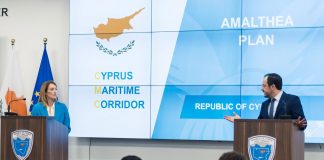According to a report in The New York Times US special envoy Steve Witkoff intends to meet Khalil al-Hayya, Hamas’s chief negotiator, in the near future.
The exact timing and location of the talks have not yet been fixed and officials quoted by the paper emphasise that the plans could still change. The stated focus of the meeting would be the implementation and possible extension of the current ceasefire in the Gaza Strip.
Al-Hayya is regarded by Israel and Western governments as a senior figure in Hamas’s political leadership and one of the architects of the 7 October 2023 attack on Israel, which triggered the latest phase of the conflict. Hamas has been designated by the US State Department as a foreign terrorist organisation since 1997, and successive administrations had avoided publicly acknowledged direct contacts with its senior leadership. A face-to-face meeting between Witkoff and al-Hayya would therefore mark a further step in the Trump administration’s willingness to engage the group as part of its Gaza strategy.
Reports based on the New York Times article note that al-Hayya already took part in earlier ceasefire talks in which he and other Hamas negotiators interacted with Witkoff and Trump adviser Jared Kushner. Those contacts formed part of the efforts that led to the current ceasefire framework between Israel and Hamas, concluded in October 2025 under a US-brokered “Gaza peace plan”.
Witkoff, a New York property developer with close ties to Trump, was appointed US special envoy to the Middle East during Trump’s second term and has played a central role in the administration’s approach to the Gaza war. He helped broker a six-week ceasefire and hostage-prisoner exchange agreed in January 2025, working alongside US officials and Qatari mediators. That deal involved the release of dozens of Israeli hostages in exchange for several hundred Palestinian prisoners, and it established Witkoff as a key channel between Washington and the various regional actors involved.
The latest planned meeting comes against the backdrop of an increasingly complex set of follow-on negotiations. US and regional media have reported that Washington has been pressing Israel to allow 100–200 Hamas fighters, currently trapped in tunnel networks on the Israeli-controlled side of the “yellow line” in Rafah, to move under guarantees of safe passage into areas controlled by Hamas in Gaza. In some versions of the emerging proposals, such movement would be tied to further steps in the ceasefire, including the return of the remains of Israeli captives and additional demilitarisation commitments. Israel has so far resisted such arrangements, citing security concerns and opposition to anything that might be seen as an amnesty for armed Hamas operatives.
At the same time, senior US officials have privately expressed concern that Israeli prime minister Benjamin Netanyahu could ultimately withdraw from the peace agreement if he judges that it constrains Israel’s freedom of action in Gaza. The New York Times has reported that figures in the Trump administration fear Netanyahu may resume large-scale military operations and thereby jeopardise the deal reached in October. Current US strategy, those reports suggest, involves coordinated efforts by Vice-President JD Vance, Witkoff and Kushner to discourage a return to full-scale offensive operations and to keep the ceasefire in place while further diplomatic steps are explored.
Within Israel and the United States, the prospect of a fresh Witkoff–al-Hayya meeting has already attracted criticism from some politicians and commentators who argue that high-level US engagement confers unwarranted legitimacy on Hamas, given its designation and its record of attacks on civilians. Supporters of the administration’s approach counter that direct contact with Hamas negotiators is now a practical necessity if remaining hostages are to be freed, fighters disarmed and a more durable ceasefire constructed. Similar arguments were made around earlier US-brokered talks in which American officials dealt indirectly or semi-openly with Hamas via Qatari and Egyptian intermediaries.
South Africa under fire after Palestinians kept on Johannesburg runway for 12 hours



